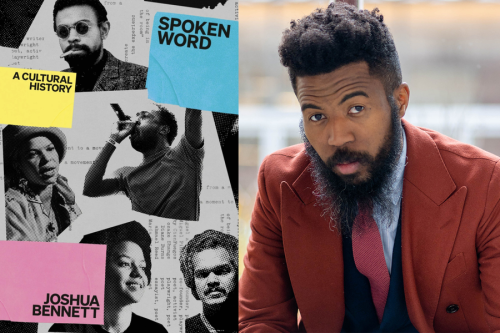 The MIT News features Joshua Bennett’s latest book and discusses how the spoken-word poetry movement took hold in America.
The MIT News features Joshua Bennett’s latest book and discusses how the spoken-word poetry movement took hold in America.
“In 1973, Miguel Algarín, an assistant professor in the English Department at Rutgers University, started inviting friends over to his Manhattan apartment for a weekly poetry session where they would read their material, edit each other’s work, and push each other creatively.
After a while, these meetings outgrew Algarín’s living room and moved to a venue he helped found on the Lower East Side of Manhattan — the Nuyorican Poets Café, which by the 1990s became the leading poetry performance space in the U.S., famed as the home of poetry slams, or competitions.
The Nuyorican Poets Café is not where the poetry slam originated, however. That was at a place called the Get Me High Lounge in Chicago, in the mid-1980s, following the lead of a poetry-loving construction worker, Marc Smith. These competitions soon spread across the U.S., fueled by practitioners who wanted to craft poetry designed for performance. In so doing, these participants revitalized an age-old art form — which has since spread through films, television shows like HBO’s early-2000s “Def Poetry” series, and YouTube.
None of this was inevitable, however. It took dedication from artists who — like their art form — had been marginalized by existing cultural institutions and wound up building some of their own.
“It’s quite incredible to see how these friendships, and chance meetings in bars and cafes and performance venues, helped create a sound that we hear across the world,” says Joshua Bennett, a prominent performance poet, author, and MIT scholar.
Now Bennett explores this landscape in a new book, “Spoken Word: A Cultural History,” just published by Knopf. In it, Bennett chronicles multiple strands of the spoken-word poetry movement, provides vivid portraits of key figures within it, and recounts his own career to date, often in relation to the growth of the genre itself.
“I’m tracing together individual points of contact, people I’ve met over my life and venues I’ve performed in, while creating this much larger history that spans about 50 years,” says Bennett, who is currently a visiting professor at MIT and will be joining the faculty full-time this summer…”
Written by MIT News Office. Read more here…
